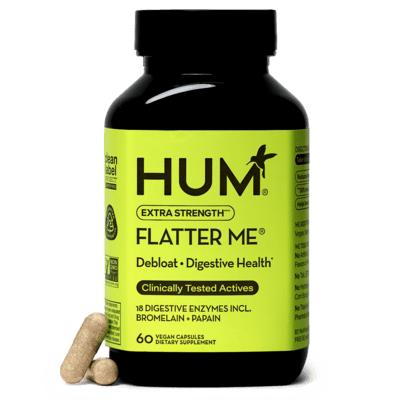When we think about aging, we usually picture fine lines, gray hairs, or memory lapses. But there’s one part of your body that may age more quickly than the rest-and that’s your gut. Over time, the gut microbiome (the trillions of bacteria living in your digestive tract) can lose diversity, making digestion slower, immunity weaker, and even your mood less stable. The good news? Unlike wrinkles, you can reverse signs of gut aging with just a few daily habits.
So, what does it mean when your gut is aging faster than your chronological age?
Let’s Dive In: How to Improve Gut Health
A happy, healthy gut is made up of various factors, including beneficial bacteria, a strong intestinal lining, and healthy immune function. However, bad habits over time can negatively impact the gut. RDN and Welzo medical advisor, Dr. Kezia Joy, explains, “Early signs are more frequent bloating, indigestion, or irregular bowel habits that don’t go away with a balanced diet. These can indicate the gut lining and microbiome aren’t working as efficiently as they ought to be.”
In addition to these, other signs may include:
- Poor absorption of nutrients
- Weakening of the immune system (causing low energy and frequent illness)
- Chronic low-grade inflammation
- Heightened sensitivity to foods (indicating the gut is “under stress beyond what’s normal for someone’s age,” Joy says)
How to Reverse Your Gut’s Aging Process
1. Prioritize a Fiber-Rich Diet
Fiber is the ultimate anti-aging solution when it comes to keeping a healthy gut. “Fiber nourishes healthy bacteria and enables them to produce short-chain fatty acids that promote a healthy gut lining,” Joy explains. “This helps relieve inflammation and keeps the function up to a healthy level over time. A high fiber diet also promotes microbial diversity, which is a key to a resilient gut that can adapt to age-related changes. By improving digestion and nutrient absorption, fiber helps to keep your gut strong and efficient, to keep it “younger” for longer.”
Quick tip: Load up on vegetables, fruits, legumes, and whole grains. A variety of these can offer different types of fibers and polyphenols, both of which gut bacteria thrive on.
2. Limit Processed Foods and Added Sugars
Ultra-processed foods are like kryptonite for your microbiome. Diets high in sugar and refined carbohydrates cause rapid gut aging and, according to Joy, decrease the variety of microorganisms, essential for healthy gut function. “Over time, this imbalance can lead to a breakdown in the gut lining and to accelerated aging. Artificial additives and low fiber diets starve the good bacteria and promote less friendly bacteria to multiply and cause further decline. Excessive consumption of fried foods and unhealthy fats can also fuel inflammation in the digestive system. This leaves the gut more prone to long-term wear and tear.” Research shows that cutting back on processed foods helps preserve microbiome diversity, which is directly tied to longevity and gut resilience. Next time you find yourself reaching for that bag of potato chips or box of cookies as a mid-afternoon snack, try eating a handful of nuts or some Greek yogurt with berries instead.
3. Move Your Body Regularly
Exercise isn’t just beneficial for strengthening your muscles—it’s good for your microbiome, too. Regular movement increases gut motility (how smoothly food passes through your digestive system), helps reduce inflammation, and boosts microbial diversity. And you don’t have to run marathons to see benefits. Simple movements like walking, yoga, resistance training, or even gentle stretching can do the trick. Aim for at least 30 minutes of movement a day to keep your digestion flowing and constipation at bay.
4. Prioritize Sleep and Stress Management

Your gut and brain are in constant connection through the gut-brain axis. When stress and sleepless nights pile up, it disrupts the body’s built-in clock (circadian rhythm), which regulates digestion and microbial function. “When this rhythm is compromised, the gut has a hard time repairing and maintaining itself,” Joy notes. This causes the body to experience bloating, cramping, and an overall imbalance. “Chronic stress also raises cortisol levels, which affect gut motility and the composition of gut bacteria. Over time, this causes a weakening of the gut lining and a slower recovery,” she says.
The best way to protect your gut is by sticking to a consistent sleep schedule, winding down with meditation, and practicing deep breathing. Also, avoid heavy late-night meals so your gut can repair itself while you sleep.
5. Incorporate Fermented Foods or Probiotics
Fermented foods and foods with probiotics are like reinforcements for your microbiome, bringing in beneficial bacteria to crowd out the bad. They can be found naturally in foods like yogurt, kefir, kimchi, sauerkraut, and kombucha. However, if you’re looking for more targeted gut support, HUM’s Flatter Me Plus Pre and Probiotics offers a quick, convenient way to keep your gut youthful-even after hard-to-digest meals. The powerful supplement uses a blend of 18 digestive enzymes, prebiotics, and probiotics to help break down all foods while promoting smoother digestion. Start small and mix up your nutrient sources—different probiotics offer different benefits, and variety is key for microbial diversity.
While gut aging is inevitable, your lifestyle habits ultimately determine whether it ages more quickly or slowly than your chronological age. Making healthy habits each day can reduce bloating and improve bowel movements within the first few weeks. They can also improve immune health and mood stability, leading to a strong connection between the gut and brain, resulting in a healthier physical and mental well-being. Just remember that your gut is in it for the long haul—treat it well each day, and it’ll keep you feeling energized and youthful for years to come.

The Gut‑Energy Hack: Fixing Your Digestion Could Be the Secret to Beating Afternoon Slumps

Want More Energy? Try This Supplement and Nutrition Routine

Your Core Habit: Why Fibermaxxing May Be Your Gut’s Best Bet to Beat Bloat and Keep Things Regular






